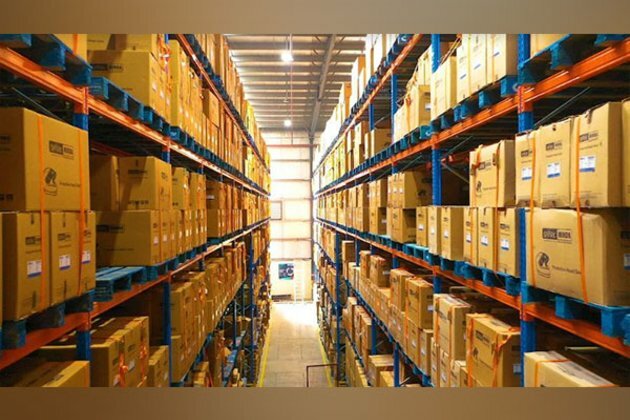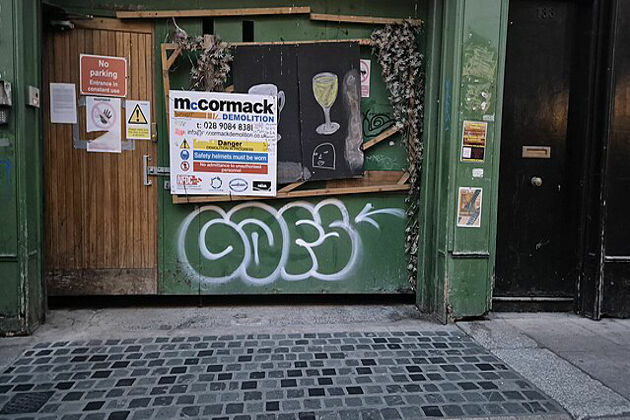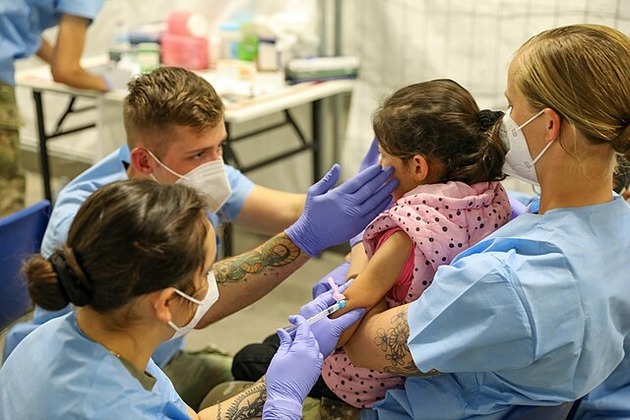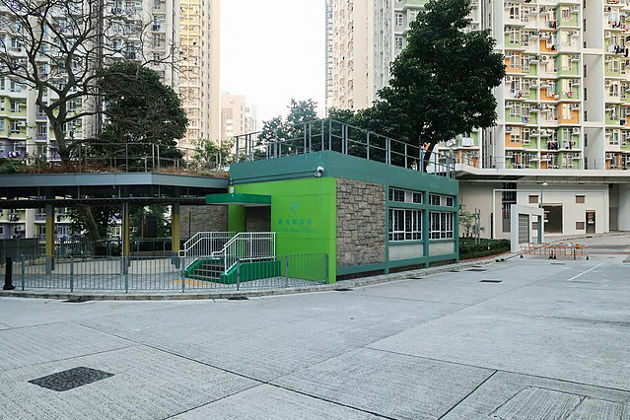Resilient Supply Chains: Driving Automotive Industry Growth through Sustainable Practices and Risk Management
ANI
26 May 2023, 11:25 GMT+10

NewsVoirNew Delhi [India], May 26: While evident progress is underway, over the past few years, the industry has successfully tackled formidable challenges, including disruptions in the supply chain, semiconductor crises, fluctuations in raw material prices and inbound/ outbound logistics overseas. Tier one automotive suppliers have demonstrated remarkable resilience by effectively meeting customer demand and capitalizing on growth opportunities.
As original equipment manufacturers (OEMs) recognize the necessity for innovation, the responsibility to develop new technologies permeates throughout the entire automotive supply chain. In order to not only survive but also thrive in this dynamic environment, all stakeholders within the automotive supply chain must proactively adapt to the evolving sector realities. To this end, several important factors will play a crucial role in determining their success.
Empowering the whole ecosystem of manufacturingLower-tier suppliers are critically important to the overall functioning of a supply chain. Disruptions at their level can quickly propagate throughout the value chain, causing disturbances. Ensuring visibility beyond tier one has become a crucial requirement for original equipment manufacturers (OEMs) due to hidden risks to the supply and brand. Additionally, legal and sustainability compliance necessitates a comprehensive understanding of the lower tiers.
Interestingly, tier one suppliers have the opportunity to play a critical role in driving sub-tier visibility and empowering the entire vehicle manufacturing ecosystem. Technology will be the key enabler in this transformation. The digitalization of the supply chain holds immense potential to provide valuable insights into the intricate structure of automotive networks, the status of value chain participants and the nature of flows between them. In the long run, the traditional linear supply chain structure could gradually evolve into a more circular model, with the finished vehicle at the center and all value chain participants surrounding it. This shift promises to enhance collaboration, efficiency, and sustainability throughout the automotive industry.
Trainings will improve the quality of overall productOEMs rely heavily on suppliers because of their ability to produce and package both the hardware and software solutions required by the OEMs on a mass production scale. Ensuring quality control throughout the supply chain, from OEMs to suppliers, becomes vital to deliver the best products to the market. Automakers have progressively strengthened their control measures over tier one suppliers, who in turn assess and manage their relationships with raw material and machinery suppliers. This collaborative approach fosters enduring partnerships that prioritize quality, enabling OEMs to meet their stringent standards and deliver superior products to customers.
Tier one suppliers have the ability to establish dedicated supplier quality and development teams, responsible for conducting audits, identifying critical issues, and devising strategies to address weaknesses within their supplier network. They can offer courses, coaching, organise various cluster programs and workshops to enhance the skills of their suppliers, enabling them to overcome challenges effectively. Through training initiatives, suppliers can not only bridge skill gaps but also gain a deeper understanding of customer needs.
For tier one suppliers, maintaining stringent quality control standards among lower-tier suppliers and investing in the skills of workers are key measures to balance the pressure of meeting demand while ensuring and even enhancing product quality. By proactively engaging in supplier development and empowering the supply chain ecosystem, tier one suppliers can foster resilience, improve overall quality leading to zero defect and meet the ever-evolving demands of the market on a sustainable basis.
Supply chain: One of the most effective starting point for sustainabilityMeeting the climate targets poses major challenges for the automobile industry. Large sections of the industry have thus recognized that supply chain is an effective starting point towards a more sustainable business. Greater focus from the government, media, capital markets and the OEMs, have made sustainability increasingly relevant for suppliers as well. Many suppliers over the globe have understood this, and have defined sustainability targets.
Tier one suppliers play a vital role in promoting sustainability within the automotive ecosystem. They can implement several measures, including conducting annual surveys of their sub-tier suppliers to assess their health, safety, labor, and environmental practices, extending their reach to suppliers further down the value chain. This will enable them to identify and address potential risks through targeted risk-mitigation programs.
Additionally, efforts can be made to optimize warehouse, using ecommerce platforms and transport logistics, such as adopting packaging strategies that reduce waste and implementing recycling initiatives. These proactive steps by tier one suppliers contribute to a more sustainable supply chain, minimizing environmental impact and promoting resource efficiency.
Effective risk management framework: Crucial for navigating supply chain crisisThe automotive supply chain, highly globalized and interconnected, faced a precarious recovery phase post-COVID-19 disruption and subsequent semiconductor shortages. The Russia-Ukraine conflict inflicted another roadblock. With Ukraine and Russia serving as crucial sources for direct components like wiring harnesses and indirect materials such as nickel and palladium for electric batteries and catalytic converters, production disruptions at these facilities reverberated across supply chains. This situation highlighted the urgent need for resilient supply chains to mitigate vulnerabilities and ensure smoother operations in the automotive industry.
Effective risk management tools are indispensable when dealing with supply chain crisis. Tier one suppliers must focus on the preempting the risks in their extended supplier network and closely examine key commodities that could be exposed to supply and inflationary pressures. They should identify alternative sources for key raw materials and maintain secondary supplier relationships to secure additional inventory. Re-evaluating the conventional practice of lean inventory management becomes essential, prompting the need to establish a stock of critical materials. Effective sourcing strategy will be key. Using multifaceted approach to optimize cost including VA/ VE (Value Analysis and Value Engineering ideas) and its effective implementation will also help and meet the rising expectations of OEMs.
Ultimately, agility in negotiating with suppliers will be foundational in overcoming this challenge.
To meet OEM customer needs effectively, automotive suppliers should enhance relationships with suppliers and distributors, improve inventory management, release non-revocable orders when necessary, and hold regular tripartite meetings with suppliers and customers. These measures ensure efficient allocation, optimal inventory levels, and clear communication, enabling suppliers to meet customer demands with agility and reliability.
ConclusionThe automotive industry's success relies on the proactive efforts of tier one suppliers who play a critical role in driving innovation, sustainability, and quality control throughout the supply chain. By leveraging technology, strengthening supplier relationships, implementing robust risk management frameworks, and prioritizing sustainability practices, these suppliers can navigate crises, foster resilience, and contribute to the long-term success of the automotive industry. With their unwavering commitment to innovation and collaboration, tier one suppliers are poised to shape a thriving and sustainable automotive ecosystem for the future.
Article by NK Modi, Executive Director, Minda Corporation(Disclaimer: The above press release has been provided by NewsVoir. ANI will not be responsible in any way for the content of the same) Share
Share
 Tweet
Tweet
 Share
Share
 Flip
Flip
 Email
Email
Watch latest videos
Subscribe and Follow
Get a daily dose of Belgium Sun news through our daily email, its complimentary and keeps you fully up to date with world and business news as well.
News RELEASES
Publish news of your business, community or sports group, personnel appointments, major event and more by submitting a news release to Belgium Sun.
More InformationEurope
SectionIrish Rail faces 26,000-euro bill after graffiti spree by man
DUBLIN, Ireland: Irish Rail incurred over 26,000 euros in damages due to a series of graffiti incidents carried out by a 24-year-old...
Warsaw responds to migration pressure with new border controls
SLUBICE, Poland: Poland reinstated border controls with Germany and Lithuania on July 7, following Germany's earlier reintroduction...
Ireland’s PM ‘hopeful’ of EU-US tariff deal before July 9 deadline
DUBLIN, Ireland: Taoiseach Micheál Martin has expressed cautious optimism that the European Union and the United States can strike...
Fans perform WWII-era Fascist salute at Marko Perković’s mega concert
ZAGREB, Croatia: A massive concert by popular Croatian singer Marko Perković, known by his stage name Thompson, has drawn widespread...
Ireland’s citizens undeterred as Europe swelters in record heat
DUBLIN, Ireland: Despite extreme heat gripping much of mainland Europe, Irish holidaymakers are pressing ahead with their travel plans,...
Beijing hits back at EU with medical device import curbs
HONG KONG: China has fired back at the European Union in an escalating trade dispute by imposing new restrictions on medical device...
International
SectionCDC: US records 1,288 measles cases, most since 1992 outbreak
ATLANTA, Georgia: The United States is facing its worst measles outbreak in more than three decades, with 1,288 confirmed cases so...
Gaza War sucking life out of an Israeli generation
In the past month alone, 23 Israeli soldiers have been killed in Gaza—three more than the number of remaining living hostages held...
Faulty IT system at heart of UK Post Office scandal, says report
LONDON, U.K.: At least 13 people are believed to have taken their own lives as a result of the U.K.'s Post Office scandal, in which...
Travelers can now keep shoes on at TSA checkpoints
WASHINGTON, D.C.: Travelers at U.S. airports will no longer need to remove their shoes during security screenings, Department of Homeland...
Rubio impersonator used AI to reach officials via Signal: cable
WASHINGTON, D.C.: An elaborate impersonation scheme involving artificial intelligence targeted senior U.S. and foreign officials in...
Warsaw responds to migration pressure with new border controls
SLUBICE, Poland: Poland reinstated border controls with Germany and Lithuania on July 7, following Germany's earlier reintroduction...












